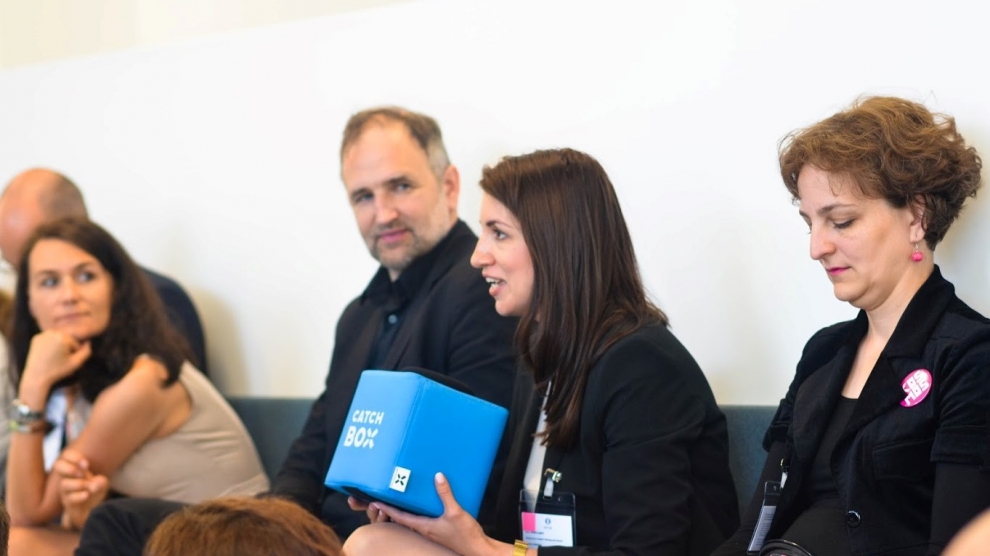To be innovative is a challenge, and it’s a challenge that emerging Europe is meeting by trying to increase the number of people who feel empowered to make real, meaningful change.
“Empowerment means giving people skills to survive,” said Marija Povilaite, a board member at New Door, a Latvian social entrepreneurship accelerator, during a roundtable discussion about empowerment and civil society held within the Emerging Europe Leaders’ Meeting and Awards. “To all people. We run non-formal educational programmess, social services; we target young people, the elderly, ex-convicts.”
When it comes to empowering young people, Central and Eastern Europe must play a leading important role. In spite of a number of encouraging efforts by policy makers in some countries, youth in the region continue to fall through the cracks of public policy. According to the World Bank, unemployment is contributing to risky behaviour among young people, as they feel marginalised socially, economically and politically.
Across the region, civil society and NGOs have stepped in to fill the breach left by the state sector, addressing the needs of young people and finding a more effective approach to the social, economic and political participation of young people in society.
“At the beginning, there is a lack of self-confidence,” said Claudio Rivera, associate professor at Riga Business School. “And we need to find the reasons. The young generations have too many options and they can feel a little bit lost. We need to work on personal ambitions, through mentorship and coaching. Young people want to feel responsible and they want to have an impact on society.”
“I am young myself, I am 26. Young people today have more courage, they are not aware of obstacles and barriers,” said Ana Rasovic, vice president of the Union of Young Entrepreneurs of Montenegro, an organisation which won the Emerging Europe award for the year’s best Young Empowerment Initiative.
The Union of Young Entrepreneurs of Montenegro encourages the true spirit of entrepreneurship by creating an environment in which young entrepreneurs can connect and support each other, thereby contributing to the development of their own businesses.
“We teach them about entrepreneurship, leadership and we give them the means to start something. We only show them how to do it: after that, they do not need help anymore,” she added.
Deti-MBA is a business school for teenagers in Belarus that sets out to achieve a similar goal.
“The success of their own projects makes them feel empowered,” commented Deti-MBA’s founder Pavel Yakimenko. “When they see that start-ups launched in other countries have been a success, they are more motivated.”
The goal of the Deti-MBA is to develop leadership skills in children in grades five to 11, giving them a creative approach to solving problems as well as developing entrepreneurial skills.
“In former Soviet countries, the stereotype is: ‘it’s difficult to be a businessman because you need connections.’ We are trying to show that to start projects people don’t need a lot of investment, just good marketing and knowledge of social media rather than a huge budget,” he continued.
Once young people find themselves in the workplace, empowerment needs to move to a different level.
“In workplaces there are three ways of empowering people: giving them skills, inspiring them, and delegating. If leaders do not trust their teams, they cannot prove themselves to be trustworthy,” explained Mrs Povilaite.
“Millennials were born with technology in their hands,” said Artur Rtiscev, head of UK operations at Invest Lithuania, the region’s leading investment promotion agency for the second year in succession. “And an interesting aspect of this is reverse mentoring. Millennials are teaching to CEOs now. And we all have to learn.”
“Innovation needs an open society. Innovation needs obstacles and problems to solve,” added Anna Wójcicka, co-founder and president of Warsaw Genomics, a Polish start-up whose mission is to develop and deliver highly sensitive and accurate evidence-based genetic tests, searching for genetic errors responsible for human diseases.
“We tell people how to not get diseases instead of curing them. This is what empowerment is all about,” she concluded.






Add Comment